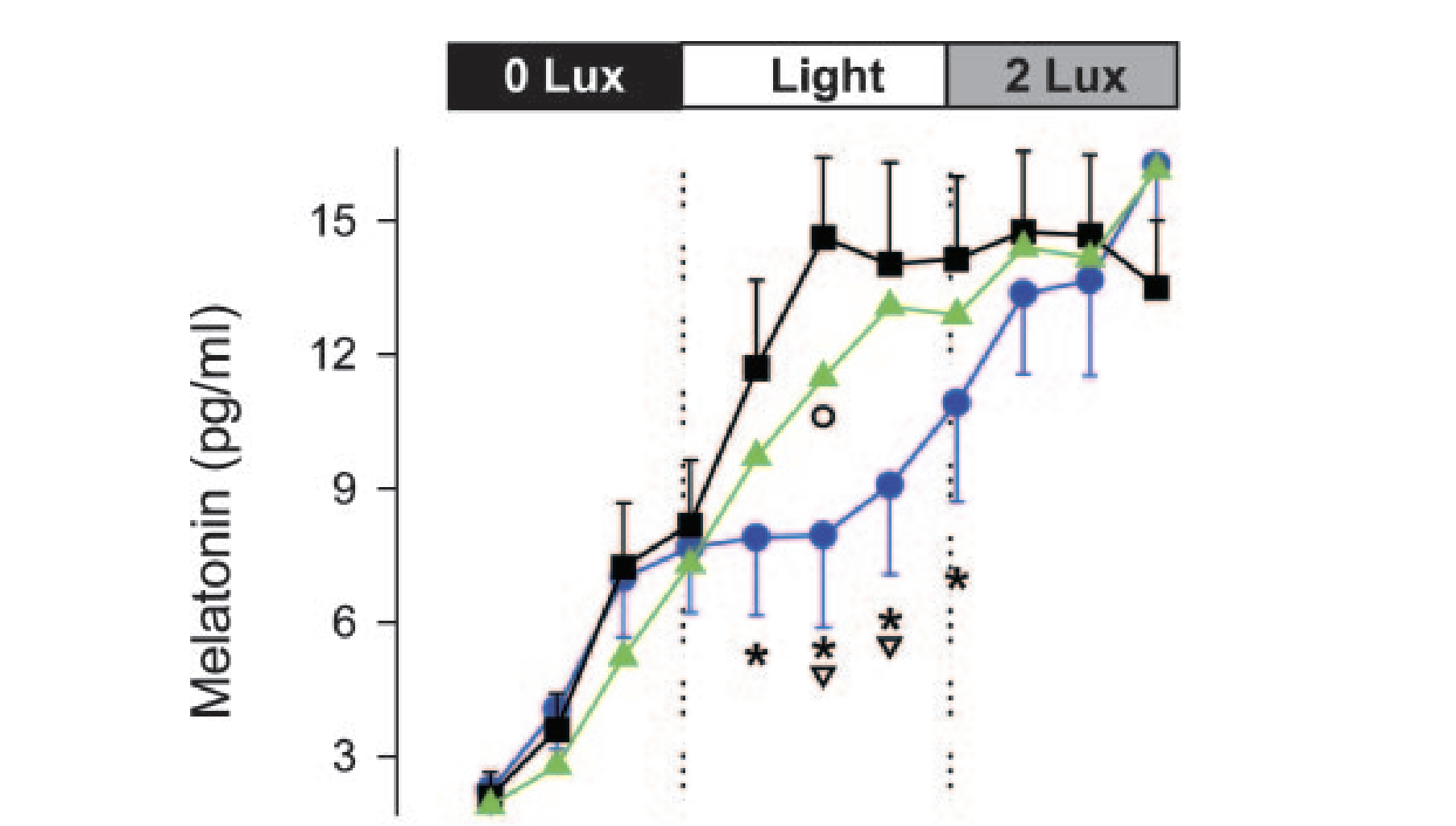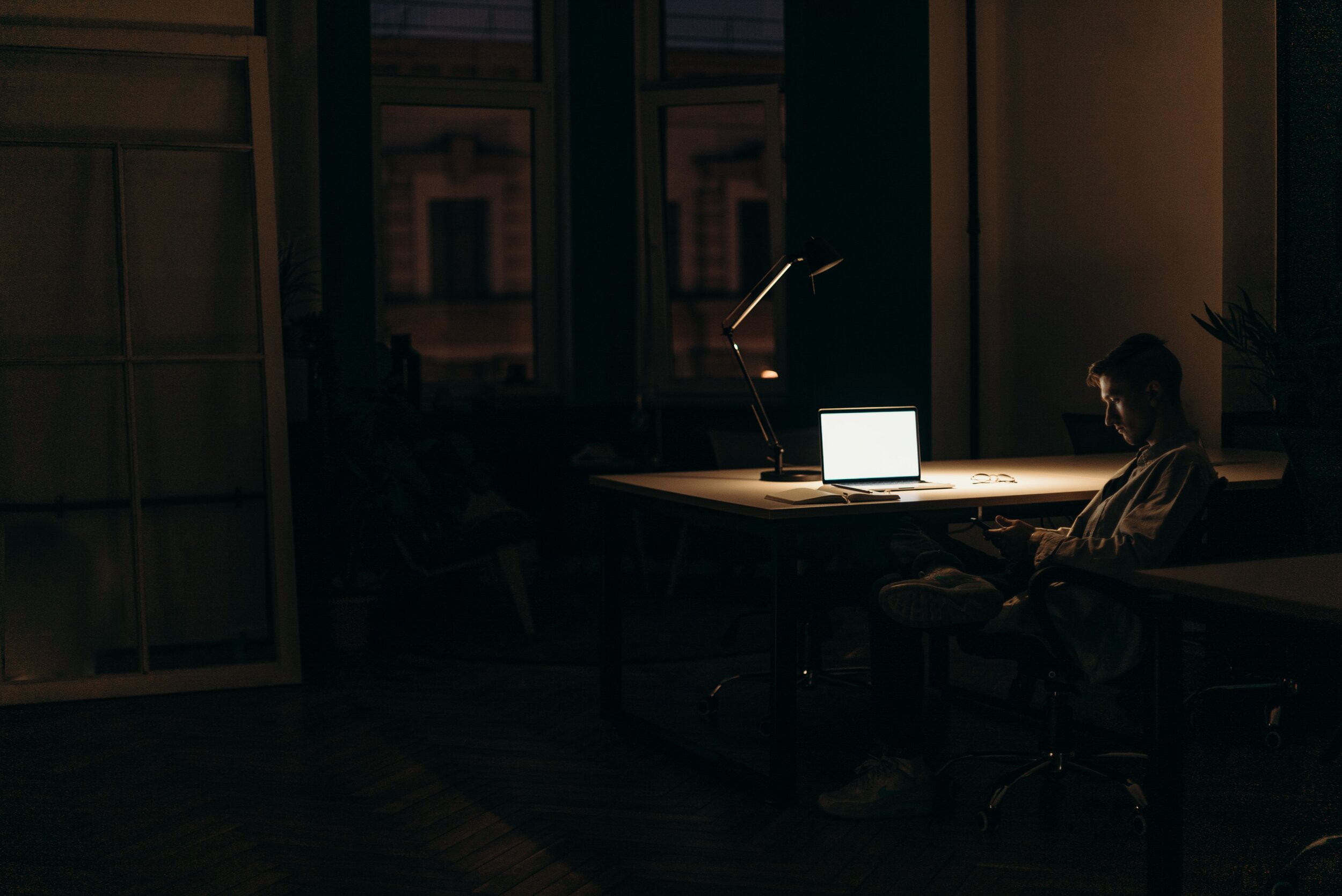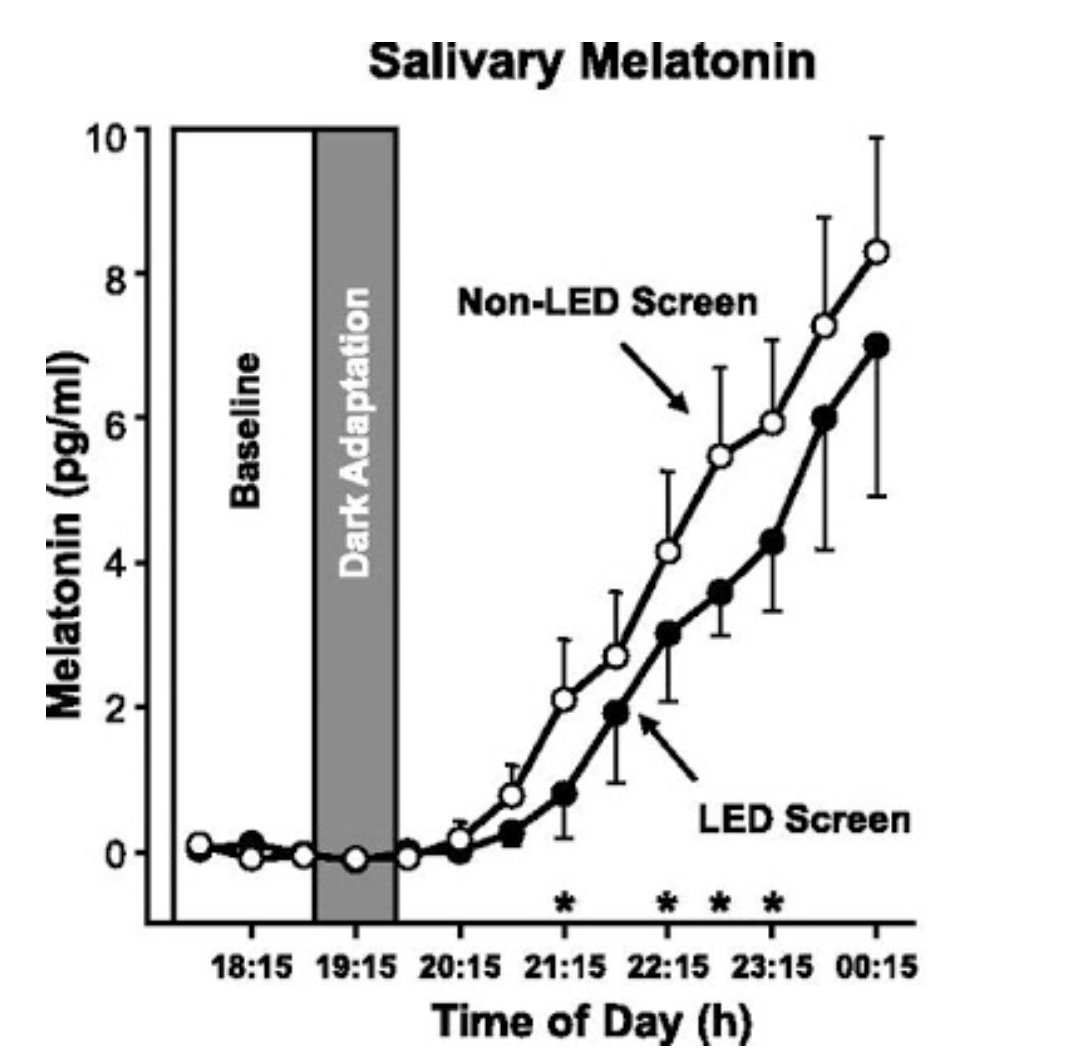#66 - Blue Screenlight: Does it Affect Melatonin? - Part 2
I was really looking forward to serving my own ADHD this week by writing about a fresh new blog about REM sleep…
( *sigh )
But …
Last week’s blog on the myth of blue screenlight affecting sleep went off!
It created so much discussion - and even debate amongst a few scientific peers - that it’s necessary to complete this important story.
As you’ll remember from last week, I reviewed the evidence, and crunched some of the data, and showed that the blue light from screens does not translate to difficulty falling asleep.
So this week, let’s test whether the blue light emitted from screens affects melatonin …
WTF is Melatonin?
Melatonin is a hormone that is released from our brains typically when the sun sets; it peaks around midnight; and fades away when the sun rises in the morning (this assumes you don’t live near The Poles of our Earth - see this blog regarding our work in the Arctic Circle).
This is why melatonin has been colloquially referred to as the ‘Nighttime Hormone’ and the ‘Sleepy Hormone’. The latter name has been emphasised by the fact you can buy melatonin in a bottle (here’s Spruik Number 1 - you can learn much more about melatonin - including how to use it properly for sleep - here).
(And if I serve my ADHD by going on a tangent - our melatonin e-book is cheaper than what I saw in the pharmacy yesterday …)
Not sure you can trademark ‘Sleep’
Anyways, because melatonin runs free at night, it also means that light can suppress the natural release of melatonin.
So now that humans have created artificial sources of light - we humans can now be exposed to bright light after sunset.
But our members, subscribers and regular readers know how we emphasise the direct testing of concepts.
So Does Bright Light Suppress our Melatonin?
Yes. Look at this graph - for example - from 1980 (ie, we’ve known this for 40 years) …
The red arrows show melatonin levels are decreased when a person is exposed to bright light (1500-2500 lux) from 2 AM to 4 AM. In comparison the green arrow show melatonin levels when asleep or when exposed to 500 lux of light. From Lewy et al. (1980), Science.
Does Bright Blue Light Suppress our Melatonin?
Yes. Look at this graph - for example …
The black line shows the natural rise in melatonin in the evening; the blue line shows the rise is less when one is exposed to bright blue light. From Cajochen et al. (2005). The Journal of Endocrinology and Metabolism.
These graphs are representative of many studies that test these concepts.
Does Bright/Blue Light Change Our Body Clock?
Yes. My PhD mentors - the ones that trained me in performing sleep science - and who taught me how to treat sleep disorders - were the first researchers to discover this.
This is the Luke Skywalker side of bright blue light - where it becomes a therapy.
Remember in last week’s blog when I mentioned the police officer who I treated for his sleep problem?
I came to the conclusion that he had Advanced Sleep-Wake Phase Disorder. This means his body clock was timed too early. His body clock wanted him to fall asleep too early and wake up too early.
Based on the science of my mentors - and others that followed - I exposed his vision in the evening to bright green light (if I confused you shifting from blue to green light - you might need to read up on this blog later).
His bright light therapy worked, and he reached his goal of waking up around 6 AM (instead of 3 or 4 AM).
But is there a Darth Vader side of this bright blue light? Can the blue light from screens affect melatonin?
Can Bright Screens Reduce Melatonin?
If we look at whether a bright screen can suppress the natural rise in melatonin - the answer is not a straightforward ‘Yes’.
Let’s look at the evidence - chronologically …
One study that inspired our 2014 study into bright screens affecting sleep was conducted by Prof Christian Cajochen from Switzerland in 2011. Prof Cajochen graciously conversed with us when we were setting up our 2014 study, and we suspect he was also an incredibly helpful reviewer of that study.
The Cajochen et al. (2011) study found that exposure to a bright computer screen for 5 hours significantly reduced the natural rise in melatonin.
The natural rise in melatonin is less when exposed to the bright LED screen (black line).
The following year, Wood et al. (2013) from the USA found that using a bright iPad screen in the hour before bed did not significantly reduce the natural rise in melatonin - but - 2 hrs of a bright screen did.
Then in 2015, Stephanie van der Lely and colleagues from Switzerland found that the natural rise in melatonin was significantly reduced not after 1 hr of bright screen use - but 1.5 hours of use.
Her study converged with Cajochen et al. and Woods et al.
This means that the natural rise in melatonin is not significantly suppressed after 1 hr of using a bright screen. It does this after 1.5 hrs.
Can Bright Screens Change Our Melatonin Body Clock?
Last week I mentioned a Harvard study led by Anne-Marie Chang in 2015. Her study was rad(ical).
As a refresher, uni students spent 5 consecutive days either reading a printed book under dim lights - or - 5 consecutive days reading an e-book. Her study found that after reading the e-book, the melatonin body clock delayed by 1.5 hours. That’s meaningful !
Conclusions?
I really wish these messages below would get ‘out there’. Not only to the public - but also my scientific peers:
1.5 hrs (or more) of bright screen use reduces the natural rise of melatonin in the evening
Consecutive nights of using a screen can delay the circadian rhythm (aka, body clock) of melatonin
The significant effects from points (1) and (2) above do not translate to bright screens affecting the time taken to fall asleep. Think about that. Even my fellow scientists - seriously, think about that.
There are multiple studies that have allowed us to come to the conclusion in Point (1) above - but to my knowledge - there is only a single study for Point (2). Our members, subscribers and regular readers would know that it’s best to have multiple studies testing a concept so that we can be more confident that something is true.
To my social media connections who claimed it must be the content from screens that matters - please be patient. Including that info here would be too confusing. That aspect of our evening screen use is coming up next week in Part 3.
And here’s Spruik Number 2 - I speak about the topic of Technology Use at length in the Sleep Hygiene module of our new online course - Brief Behavioural Therapy for Insomnia (BBT-I). That’s because our BBT-I course will arm you with the science behind diagnosing insomnia, the science behind sleep hygiene, and the science of behavioural change around one’s sleep (thanks to those who have taken the plunge and started this course!).
If you subscribe to our free weekly newsletter by the time I get onto my laptop to watch a streaming service on Monday night, then you’ll not only receive this blog as an email in your Inbox, but I’ll be adding a discount code so you can learn BBT-I for 30% off.
Prof Michael Gradisar
p.s. yes, I use a screen at night because I’ve researched the limits of harm from tech use. So much so I that I struggle to fit all the studies onto one Powerpoint slide. You can read them all if you want - or learn the synthesis of these studies in our BBT-I course …












